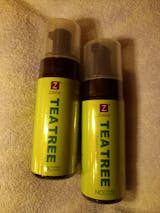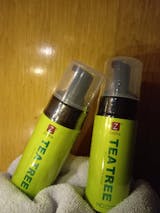Navigating Skincare in Humid Climates: Tips for Oily and Sensitive Skin
Living in a hot, humid climate makes taking care of your skin more tricky. Oily and sensitive skin often react worse when the humidity rises. Many people find their skin becomes shinier, irritated, or prone to breakouts. Proper skincare isn’t just a luxury—it’s a must for keeping your skin healthy in these conditions. As climates grow damper worldwide, understanding how to adapt your routine can save you from skin troubles. This guide offers you simple, expert-backed tips to stay confident and comfortable, no matter how muggy it gets outside.
Understanding Oily and Sensitive Skin in Humid Climates
The science behind skin reactions in humidity
When humidity levels climb, your skin produces more oil. This excess oil can clog pores and cause breakouts. Humidity also makes your skin more permeable, leading to increased irritation. Think of your skin as a sponge; in moist air, it absorbs more moisture, which can throw balance off. That’s why oily skin can become even oilier in humid weather, and sensitive skin may get more inflamed.
Unique challenges faced by sensitive skin
Sensitive skin reacts quickly to changes. Humidity can trigger redness, itchiness, or allergic reactions. You might notice burning sensations or swelling after exposure. But, here’s the key—being oily doesn’t mean your skin is sensitive, and vice versa. It’s important to tell these apart. Oily skin mainly produces too much shine, while sensitive skin reacts easily to products or weather changes.
Key statistics on skin health in humid regions
Studies show that up to 70% of people living in humid climates experience higher rates of breakouts and irritation. This highlights how crucial it is to customize your skincare routine. The right products can reduce skin problems and help keep your skin calm and clear.
Fundamental Skincare Principles for Humid Environments
Proper cleansing routines
Gentle cleansing is always important, but especially in humidity. Use a foaming or gel cleanser meant for oily or sensitive skin. Cleanse twice a day—morning and night—to remove excess oil, dirt, and sweat. Avoid over-washing, which can strip your skin’s natural barrier and make it more irritated.
Balancing hydration and oil control
Your skin still needs moisture, even if it’s oily. Opt for light, oil-free moisturizers that won’t clog pores. Look for hydrating ingredients like glycerin or hyaluronic acid, which draw moisture into the skin without adding oil. This keeps your skin balanced and stops it from overproducing oil again.
Sun protection strategies
Sun damage worsens in humid weather because sweat and oil can make sunscreen slide off. Choose a broad-spectrum sunscreen formulated for oily or sensitive skin. Reapply every two hours if you’re outdoors. Look for lightweight, matte-finish sunscreens that won’t cause breakouts or irritation.
Effective Skincare Products and Ingredients for Humid Climates
Recommended cleansers and exfoliants
Salicylic acid is great for keeping pores clear and controlling oil. Use it in cleansers or toners, but don’t overdo it. For exfoliating, avoid harsh scrubs, which can damage sensitive skin. Instead, use gentle chemical exfoliants once or twice a week for a smooth, fresh look.
Moisturizers and serums
Seek oil-free, non-comedogenic products. Serums with niacinamide or aloe vera soothe irritation and strengthen your skin’s barrier. Apply a small amount, especially after cleansing, to keep your skin comfortable without adding weight.
Active ingredients to watch for
Light antioxidants like vitamin C can protect against environmental damage. Check ingredient lists to avoid pore-clogging substances like heavy oils and Waxes. Stick to lightweight formulations for the best results.
Recommended formulations based on skin type
-
For oily skin: look for gel-based mattifying products that absorb excess oil.
-
For sensitive skin: choose fragrance-free, calming formulas with soothing ingredients like chamomile or oat extract.
Lifestyle and Environmental Tips for Maintaining Skin Health
Clothing and accessories
Wear breathable fabrics such as cotton or linen to cut down on sweat buildup. Use wide-brimmed hats and sunglasses to safeguard against sun and dust. These simple steps prevent dirt and oil from irritating your skin.
Environmental considerations
Avoid being outdoors during the hottest, most humid hours—usually midday. If you’re indoors, use air conditioning or dehumidifiers to lower room humidity. This makes your environment less harsh on your skin.
Daily habits and routines
Keep your hands and face clean during the day to prevent bacteria transfer. Avoid touching your face often, as it spreads oil and dirt. Eating a balanced diet rich in antioxidants can help your skin fight off environmental stressors.
Professional Treatments and When to Seek Expert Advice
Suitable dermatological procedures
Light chemical peels can reduce excess oil and brighten your skin. Calming facials can soothe sensitive skin and decrease redness. Talk to your dermatologist about options tailored to humid environments.
Recognizing signs for professional consultation
See a doctor if you notice persistent irritation or severe breakouts. Unusual skin reactions that don’t improve with routine care also need expert advice. Professionals can help create a specialized skincare plan.
Expert quotes and tips
Dermatologists agree that understanding your unique skin type is key. They recommend gentle, targeted routines and avoiding products that cause irritation or breakouts. Regular check-ins can keep your skin in top shape.
Conclusion
Living in humid climates requires you to tweak your skincare routine. Focus on gentle cleansing, light moisturizing, and proper sun protection. Use products suited for oily and sensitive skin, and pay attention to your environment. Remember, your skin needs care tailored to your specific needs. With the right habits and ingredients, you can keep your skin healthy, clear, and comfortable—even when it’s hot and sticky outside. Stay consistent, and don’t hesitate to seek professional help if your skin shows signs of trouble. Your skin deserves the best defense against humidity’s challenges.










